Rita Fernandes encountered exceptional performances but unexpected results at the ninth Sendai International Music Competition
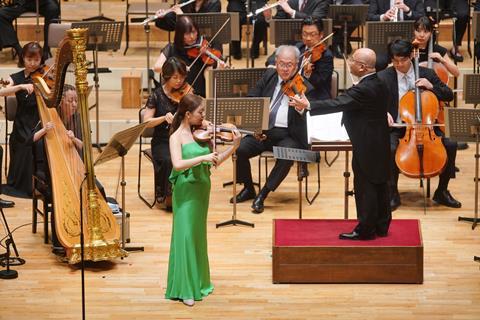
Discover more Featured Stories like this in The Strad Playing Hub.
Read more premium content for subscribers here
’It is 150 years since classical music came to Japan. Now there are generations of Japanese classical musicians,’ said Yuzuko Horigome, chair of the Violin Section jury at the triennial 2025 Sendai International Music Competition (24 May–8 June) to a room of national reporters in a press conference on 8 June. I later asked Horigome, herself a Japanese violinist with an extensive international career, what event these 150 years date back to: ‘It’s an approximation, but it relates to the opening up of Japan to the rest of the world following the end of the Edo period,’ she explained. As Japan entered the Meiji era in 1868 following the fall of the shogunate, a fiercely isolationist foreign policy ended and the country began to welcome external influences. I still felt this sense of cultural exchange at this year’s competition. And given the country’s rich, and truly Japanese, classical music culture, this exchange now comes equally from Japan as it does towards it. As one jury member put it, they want competitors to ‘fly from Sendai to the world’.
The unique characteristic of the competition, both nationally and internationally, is that, alongside other repertoire, it features a work for solo violin and orchestra at each stage. In this year’s preliminary round, violinists played Mozart’s Adagio in E major and his Rondo in C major; in the semi-finals, either the Mendelssohn or the Dvořák Violin Concerto; and for the finals, they could select a concerto by Mozart plus one from a list of 17 dating between 1800 and 1950, including works by Beethoven, Tchaikovsky, Elgar, Sibelius, Berg and Shostakovich, both played alongside the Sendai Philharmonic Orchestra under Junichi Hirokami. Mozart pieces were a thread throughout the competition programme, as well as being key to the controversial final result.
The finals took place over three evenings (5–7 June), with four performances each night, featuring a total of six finalists. First up was 19-year-old Hairui Lei playing Mozart’s Violin Concerto no.1. His projection was solid and his tone velvety, but a narrow vibrato and limited interpretative variety meant that he posed little competition to the next player: 17-year-old Jinzhu Li, also from China, who performed Mozart’s Fourth Concerto. She instantly buzzed with energy. Her tempos were spontaneous yet stable, and the cadenza felt assured and deliberate. Chinese 17-year-old Aozhe Zhang then performed Tchaikovsky’s Violin Concerto. He was clearly a very expressive player, but a stiff technique often inhibited his expression, although he loosened up by the third movement.
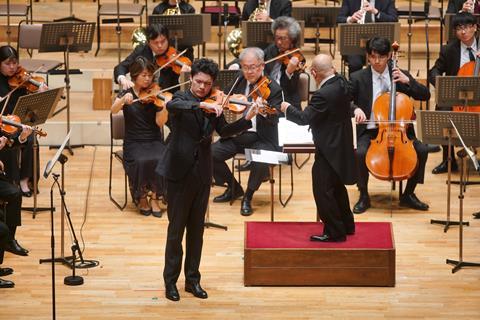
Seohyeon Park, 19, from Korea, ended the first evening with the Stravinsky Violin Concerto. It was a character-filled performance; he made the clunky main theme sound surprisingly intuitive. However, given that the work was probably little known by many in the room (including myself), Park could have given more priority to its overall structure. The same went for Lei’s performance of the Bartók Violin Concerto the next evening: his technique was flawless, but the piece felt too big for him. While these bold repertoire choices were admirable, they unfortunately came at the cost of well-rounded performances. (The Sendai Philharmonic Orchestra meanwhile gave polished and powerful performances of the two pieces.)
Korean Boha Moon, 19, kicked off the 6 June performances with Mozart’s Violin Concerto no.1. Her playing was sparkling with an expansive sound – even the spiccato felt spacious and resonated right to the back of the hall. Her improvisatory cadenza was also a highlight.
Three competitors played Mozart’s Fifth Concerto, starting with Haram Kim, 27, from Korea. His performance was perhaps the most mature Mozart of the competition. It was full-bodied and unapologetically soloistic, with a thrillingly rustic Turkish dance in the last movement. Park’s interpretation the following night was also assured and had a very imaginative and conversational cadenza. Zhang’s performance, however, could have benefited from Kim’s and Park’s sense of playfulness, particularly in the humorous and ironic last movement.
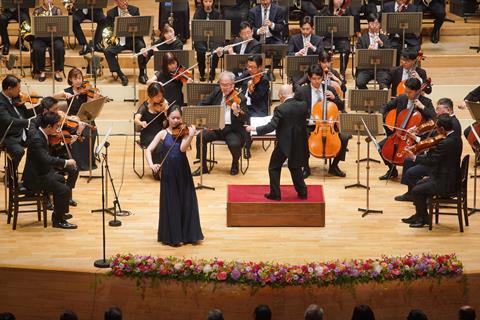
Li returned on 6 June with the Sibelius Violin Concerto. Her right-hand technique was almost beyond belief. I could only tell where the bow changes were by looking at the direction of her arm. This skill gave space to even the most terrifying passages, particularly the infamous up-bow staccato scale in 10ths. And while still full of expression, her second movement was not overly indulgent, making the heart-wrenching moments all the more profound.
On 7 June, Moon performed Bruch’s Scottish Fantasy. She seemed totally at home in the work’s epic folkloric outbursts, though slightly less at ease in the more lush, melodic moments. And finally, Kim’s performance of the Tchaikovsky Concerto involved several noticeable slips that he bravely recovered from each time. And after an electrifying coda, he received a rapturous ovation – the most of any performance. It therefore came as a surprise when he ended up being placed joint sixth alongside Lei. Park took fifth, Li fourth, Zhang third and Moon received the highest prize of the evening, second place. Though my predictions for the placings were mostly off, I did agree with the decision not to award first prize. While all consistently displayed immense virtuosity and expressive maturity, no one competitor was an unequivocal standout. The Mozart concertos were also key to the jury’s decision.
The jury members did not mince their words in the press conference, just half an hour after the finals. In their minds, the Mozart concertos were generally of a lower standard than the Romantic and 20th-century ones. And seeing as no contestant had performed both of their concertos equally well (in the jury’s minds), they felt they could not award the top prize. ‘It’s very difficult music to play,’ Horigome told me of the Mozart concertos. ‘The sound colour is completely different from that of later concertos, and there are many traps that you will only encounter when performing them. I hope it will make them appreciate Mozart even more in the future.’
As I looked at the unclaimed gold medal on stage, I wondered whether the absence of a first prize was actually a blessing in disguise. The question is, what does a competition really offer if we are deprived of an outright victor? For me, it is a blunt reminder of how complex and challenging the modern competition circuit really is; and how formidably these young talents navigate such an extraordinary set of conditions. Horigome made a point of this in front of the several reporters understandably fixated on the lack of a first prize: ‘Not having a first prize doesn’t at all mean they are not gifted – it is simply not normal to have to play five concertos in two weeks! I’m sure they all have bright futures ahead of them.’
Read: No first prize awarded at the 2025 Sendai International Music Competition
Read: Postcard from Hanover: Joseph Joachim Violin Competition
Discover more Featured Stories like this in The Strad Playing Hub.
Read more premium content for subscribers here

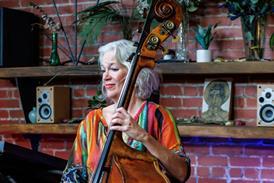
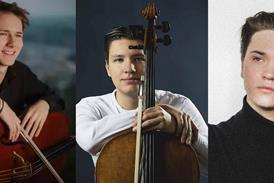
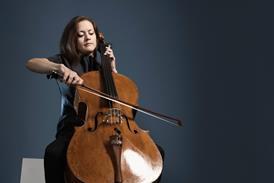
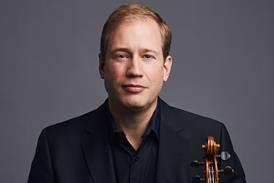
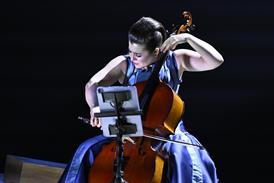

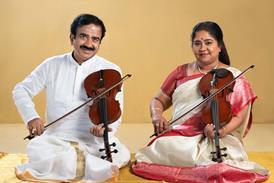

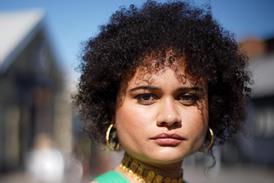
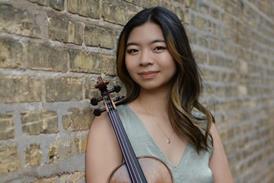

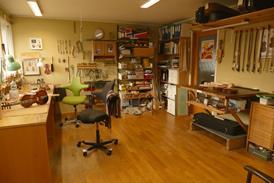
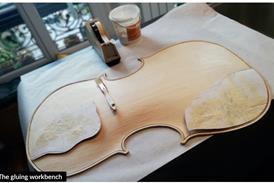
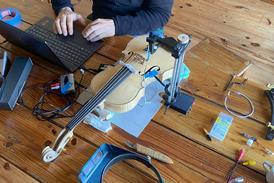
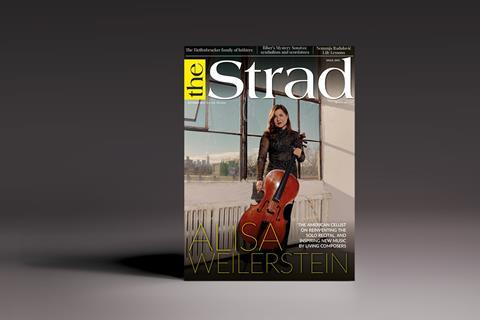




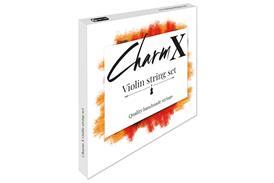
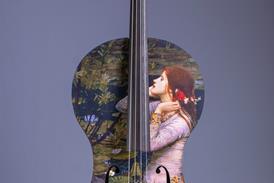
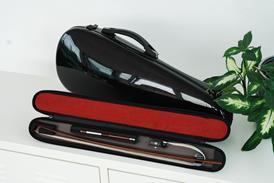

















No comments yet